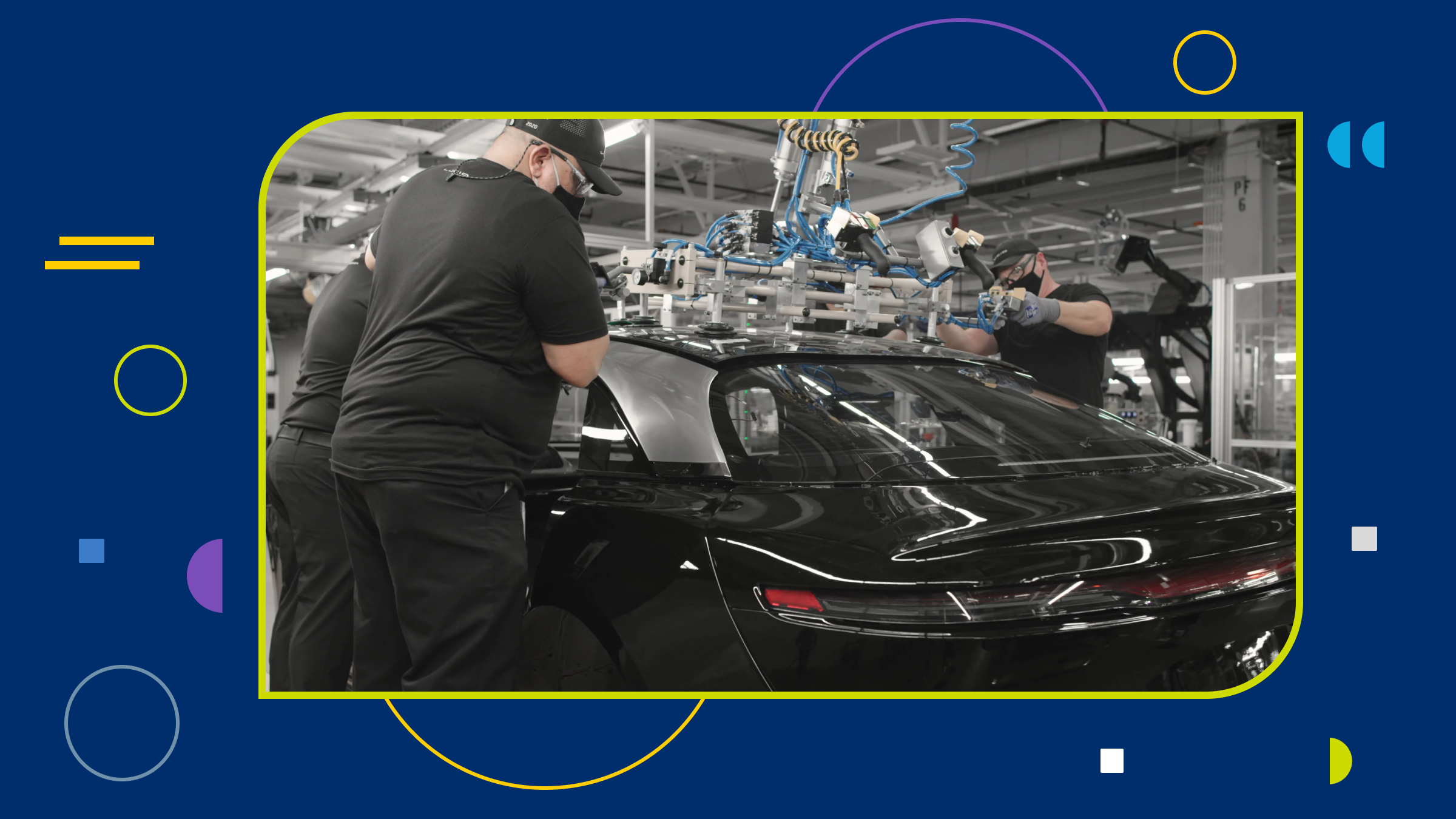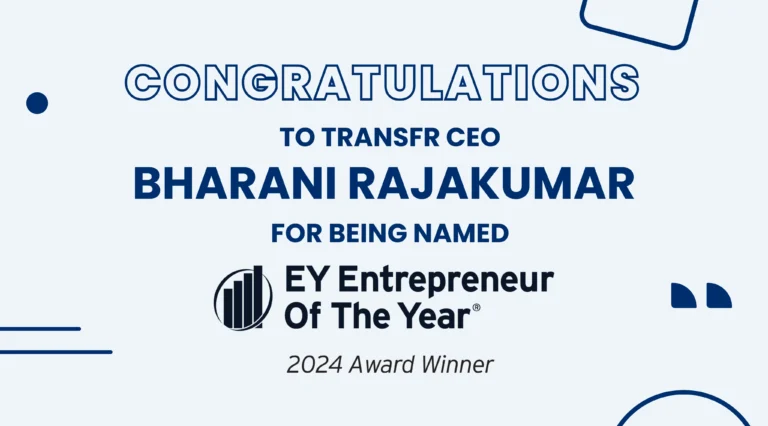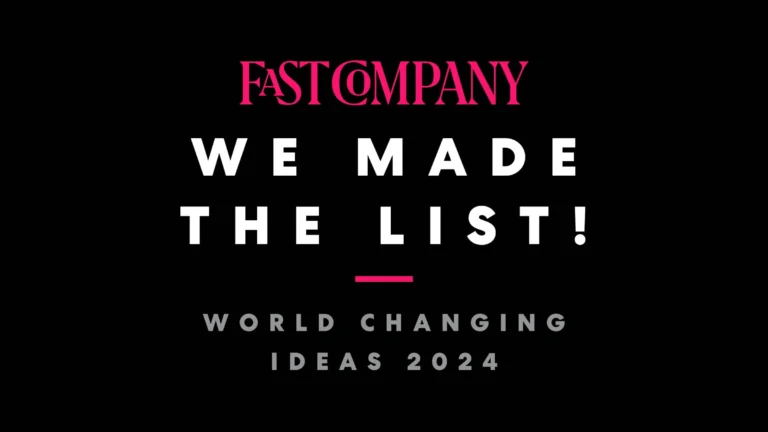Manufacturing is coming back across the country, and these new facilities are not the dark, dirty factories of the past; they’re also not stark environments run only by machines and robots. In the present day, modern factories have evolved into dynamic environments driven by human creativity and collaboration, offering employment opportunities for individuals with diverse backgrounds and skills.
Some experts, from sources such as the World Economic Forum, say that manufacturing is in the midst of a fourth industrial revolution, which integrates humans, machines, and cyber-physical systems to safely, effectively, and efficiently create the products that keep the world running. That might sound complicated, but it doesn’t have to be. New technologies like virtual reality (VR) career exploration and VR skills training are helping a new generation of workers explore and understand the knowledge, skills, and mindset required for jobs in this sphere as well as how to succeed in a manufacturing career.
In this article, we’ll dig into how business-policy-education partnerships can educate students and job seekers about these roles, how K12 and post-secondary education can give people the skills they need to succeed in the new world of manufacturing, as well as the importance of continuing education for manufacturing workers.
Leverage partnerships to fill employment pipelines
Building a skilled, engaged workforce able to meet the demands of this fourth industrial revolution means that educators, leaders, learning and development (L&D) professionals have an incredible opportunity to adapt and retool the education-to-workplace ecosystem. Existing employees will have opportunities to acquire new skills, while students and those searching for employment can discover the exciting array of available jobs. They can also learn how to chart a path towards valuable, sought-after positions, ensuring that they’re well-prepared for success.
On the industry and policy front, employers need to collaborate with governments and workforce development boards to publicize which jobs are coming to an area and what skills are needed, before plants are just about to open. It takes time to build an employment pipeline. Tech solutions like Transfr’s Augmented Reality (AR) experience can be very effective at shining a light on new roles when industry and policy partners leverage that tech to build out recruitment strategies that excite and educate students and job seekers as to what these jobs look like, the skills needed, and how to obtain those skills.
Learning about career opportunities at all levels through an immersive experience is often more engaging than just reading about them or sitting through a presentation. VR skills training integrated into Career Technical Education (CTE) training programs can also speed up time to proficiency on required skills to help people get job-ready faster. And leveraging these VR solutions doesn’t need to wait until high school or college — schools can work with Transfr to develop application-based learning that starts in elementary school.
Embrace application-based learning in K12
The days of exhaustive classroom learning and passive elearning are over; education programs seeking to train the future of the high-tech manufacturing industry should embrace microlearning, flipped classrooms, as well as project-based, discussion-based, and outcome-focused learning. These methodologies, combined with technology like VR, AR, and Artificial Intelligence (AI) help prepare students and job seekers for modern manufacturing workplaces.
With cutting-edge technology and curricula informed by industry partners, students, parents, and communities can understand the skillsets required to enter and continue on through a career in manufacturing. Those proceeding down this path can also learn to embrace a mindset that values collaborative work and continuous improvement and does not fear failure (instead seeing it as a step along the road to eventual success). These skills and this frame of mind will prepare students and job seekers for industry 4.0 work environments.
Manufacturing employers like Lucid are looking for individuals that have a growth mindset, meaning they practice a positive attitude, learn from mistakes, and aren’t afraid of failing because they know that’s how we learn and continuously improve. Ideal candidates appreciate feedback and don’t give up!
VR manufacturing training simulations, where it’s safe to make mistakes and a cool-headed AI coach gives personalized feedback can help build skills and engender this growth mindset. The detailed sim settings can also help shift attitudes away from antiquated views of factories towards a truer understanding of what these modern workplaces are like: bright, clean, and brimming with amazing opportunities.
Ongoing education and growth mindset are key
The prep work educators, industry partners, students, and job seekers need to do before entering a manufacturing career is only part of the story! Manufacturing operations must also leverage the same technologies and learning strategies to continually reskill and upskill their workforces.
Each organization should invest in a centralized learning organization that partners with and supports the business, HR, IT, and other applicable stakeholders, to deliver the right content, at the right time, to the right audience, using the right technology and learning solutions. Onboarding, reskilling, upskilling, and attaining industry- and job-relevant credentials constitute crucial aspects of a worker’s career and educational journey. They hold equal significance alongside the foundational skills that initially qualify them for a particular role. By aligning appropriate training with a workforce that possesses a growth mindset and a strong thirst for learning, you have the potential to establish a manufacturing organization that stands the test of time. Enabling your employees with the essential skill-building trainings they require to flourish as professionals will result in decreased turnover rates, heightened productivity, and ultimately foster a stronger sense of unity within your company.
VR training has been found in a range of studies to be highly engaging as well as delivering content effectively (in both initial transference of skills and knowledge retention). If your company is curious about trying VR training simulations, there’s no time like the present.
Towards a brighter future for manufacturing
Technology in the workplace will continue to evolve at an exponential rate, particularly in high-tech areas like manufacturing. It is our collective responsibility as manufacturers, educators, and government agencies to support this transition. Business, policy, and education partnerships that foreground application-based learning starting in early childhood education, and help learners develop a growth mindset focused on continued education will help create the necessary conditions for successful manufacturing operations long-term.
Whether it’s through manufacturing college/university programs, apprenticeships, professional certifications, on-the-job training, or guided mentorships, any pathway that integrates the right technology, content, and values can support students and job seekers in pursuing well-paying jobs within this vital sector!





